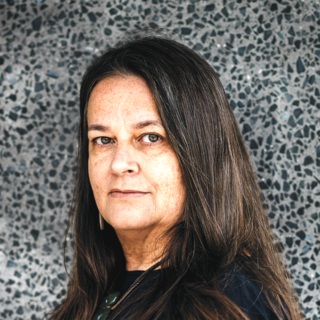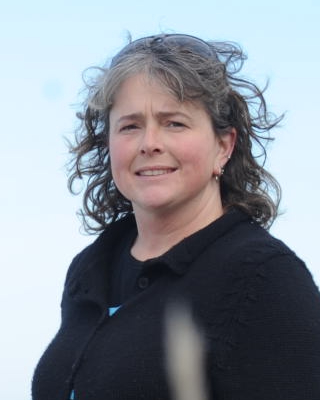Te Pāti Māori, also known as the Māori Party, is a political party in New Zealand advocating Māori rights. With the exception of a handful of general electorates, Te Pāti Māori contests the reserved Māori electorates, in which its main rival is the Labour Party.

Māori politics is the politics of the Māori people, who were the original inhabitants of New Zealand and who are now the country's largest minority.

Kura kaupapa Māori are Māori-language immersion schools in New Zealand, where the philosophy and practice reflect Māori cultural values with the aim of revitalising Māori language, knowledge and culture. Kura kaupapa Māori are established under the Education Act (1989). The term kaupapa Māori is used by Māori to mean any particular plan of action created by Māori to express Māori aspirations, values and principles.

The principles of the Treaty of Waitangi is a set of principles derived from, and interpreting, the Treaty of Waitangi, which was signed in New Zealand in 1840. The phrase "principles of the Treaty of Waitangi" was first used in the Treaty of Waitangi Act 1975, and the principles were codified in 1987. There is no final list and they are determined on a case-by-case basis. They include the three Ps: partnership, participation and protection of rangatiratanga.

Bridget Williams Books is a New Zealand book publisher, established in 1990 by Bridget Williams.

Helen Moewaka Barnes is a New Zealand academic. She is Māori, of Te Kapotai (Ngāpuhi) and Ngapuhi-nui-tonu descent, and is currently a full professor at Massey University. In 2021 she was elected as a Fellow of the Royal Society Te Apārangi.

Tina Makereti is a New Zealand novelist, essayist, and short story writer, editor and creative writing teacher. Her work has been widely published and she has been the recipient of writing residencies in New Zealand and overseas. Her book Once Upon a Time in Aotearoa won the inaugural fiction prize at the Ngā Kupu Ora Māori Book Awards in 2011, and Where the Rēkohu Bone Sings won the Ngā Kupu Ora Aotearoa Māori Book Award for Fiction in 2014.
Suzanne Georgina Pitama is a New Zealand academic, is Māori, of Ngāti Kahungunu and Ngāti Whare descent and as of 2020 is a full professor at the University of Otago in Christchurch, New Zealand.

Aroha Gaylene Harris is a Māori academic. As of 2020, Harris is an associate professor at the University of Auckland, specialising in Māori histories of policy and community development. She is also a member of the Waitangi Tribunal.

Tamatha-Kaye Erin Paul is a New Zealand activist and politician who is a Member of Parliament for Wellington Central. In 2018 she was the first Māori woman to be elected President of the Victoria University of Wellington Students' Association. Running as an independent Paul was elected to the Wellington City Council in 2019. She joined the Green Party of Aotearoa New Zealand ahead of the 2022 local elections.
Alice Te Punga Somerville is a poet, scholar and irredentist. Dr Te Punga Somerville is the author of Once were Pacific: Māori connections to Oceania which provides the first critical analysis of the disconnections and connections between 'Māori' and 'Pacific'. Her research work delves into texts by Māori, Pacific and Indigenous peoples that tell Indigenous stories in order to go beyond the constraints of the limited stories told about them. In 2023 she won New Zealand's top award for poetry, the Mary and Peter Biggs Award for Poetry, for her collection Always Italicise: How to Write While Colonised.

Alana Marissa Lopesi is a New Zealand writer and critic. She has been published in multiple places in New Zealand and Australia, and has been an editor in chief at The Pantograph Punch. Her recent book Bloody Women is a series of essays which describes her experiences as a Samoan woman living in New Zealand.
Bonnie Jade Kake is a New Zealand Māori architect of Ngāpuhi, Te Arawa and Whakatōhea iwi. She specialises in designing communities and housing based on a traditional model of living known as papakāinga.

Nicola Rowan Wheen is a New Zealand academic, and is a full professor at the University of Otago, specialising in national and international environmental law, and environmental law and the Treaty of Waitangi.
Melissa Matutina Williams is a historian, author and academic in the field of indigenous studies. She has contributed research about the urbanisation of Māori in New Zealand that started in the 1960s.
Jen Margaret is a New Zealand Te Tiriti o Waitangi educator, researcher, and author on community and international development work. She founded Groundwork: Facilitating Change, an organisation to educate Pākehā about New Zealand history and Te Tiriti o Waitangi.
Veronica Makere Hupane Tawhai is a New Zealand academic and an associate professor at Massey University.

Arohia Ernestine, Lady Durie (née Kōhere) is a New Zealand Māori educationalist. She was the first professor of Māori education at Massey University, where she was appointed full professor in 2001. Durie led the development of the first te reo Māori immersion graduate course. She retired from the university before or during 2010. Durie's husband is psychiatrist Mason Durie, and their son, Meihana, is also a professor at Massey University.

Fiona May Cram is a New Zealand social psychologist and researcher, of Ngāti Pāhauwera descent. In the 2019 Queen's Birthday Honours, Cram was appointed a Member of the Order of New Zealand, for services to Māori health and education.

Heather Anne Came is a New Zealand activist, academic and anti-racism scholar, and is an adjunct professor at Victoria University of Wellington, and an anti-racism consultant. In 2023 Came was appointed a Member of the New Zealand Order of Merit for services to Māori, education and health.












